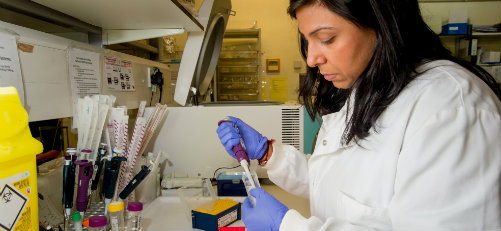
Read the latest news from our research teams
Our researchers are constantly working to improve patient care and develop better treatments.
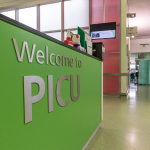
18 December 2024
A study has highlighted how rare variants of a gene that regulates the gut lining may increase the risk by up to 4 times of MIS-C.
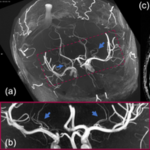
7 November 2024
Researchers at Evelina London and King's College London have received funding from the Royal College of Radiographers for a new project to improve MRI detection of sickle cell disease-related brain injury in children.
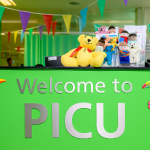
23 October 2024
Children who were treated in Evelina London Children's Hospital's paediatric intensive care unit were involved in an important study to increase understanding of what happens to a child's immune system when they have a severe infection or inflammatory disease.
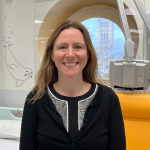
7 October 2024
Experts at Evelina London and King's College London are opening a new clinical trial aimed at preventing children from developing food allergies.
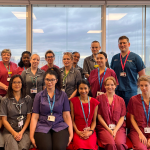
4 October 2024
St Thomas' Hospital has joined the world-leading Generation Study to test newborn babies for a range of genetic conditions.
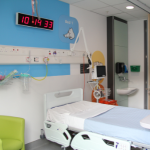
20 September 2024
Evelina London Children's Charity has awarded grants totalling £175,00 to clinicians working in our services to support them to deliver and grow research.
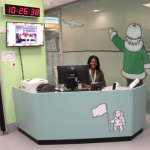
2 September 2024
Children and young people at Evelina London Children's Hospital were involved in a research study testing the effectiveness of Ustekinumab in type 1 diabetes.
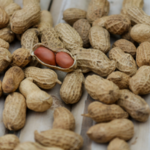
29 May 2024
Feeding children peanuts regularly from infancy to age 5 reduced the rate of peanut allergy in adolescence by 71%, even after many years when the children ate or avoided peanut as desired.

20 March 2024
New research has found that all new schools proposed to be built between 2017 and 2025 are currently or will be in areas of high pollution.
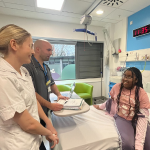
28 February 2024
Evelina London has recruited the first child in the UK for a clinical research study looking at a treatment for a rare inflammatory condition.
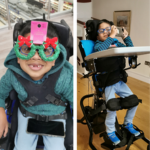
28 February 2024
A study led by Evelina London provides important information about Zolgensma's use in real-world clinical settings for children with type 1 SMA.
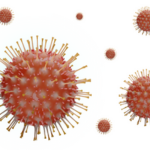
9 February 2024
A study has published its findings into treatment for paediatric multisystem inflammatory syndrome (PIMS) associated with COVID-19.
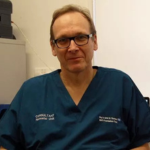
9 January 2024
Professor David Edwards, consultant neonatologist at Evelina London Children's Hospital and Professor of Paediatrics and Neonatal Medicine at King's College London was made an MBE for his services to health research.
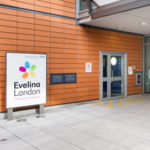
14 November 2023
Researchers from King's College London and Evelina London have found that congenital heart disease can affect the brain development of unborn babies.
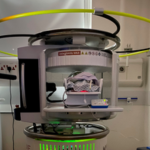
11 October 2023
Experts at Evelina London Children's Hospital and King's College London have made major advances in detecting brain conditions in babies.
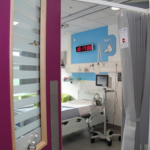
1 August 2023
A study led by Evelina London Children's Hospital has found a steady decline in the publication of paediatric research worldwide since 2020.
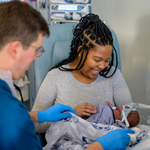
1 March 2023
A study carried out by teams at Evelina London’s neonatal unit, and recently published in the BMJ Paediatrics Open, has helped to improve understanding about how neonatal units can help premature babies born before 24 weeks.
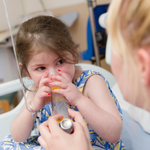
31 October 2022
An exciting new research study at Royal Brompton and Harefield hospitals aims to determine whether a musical device app can help children with asthma.
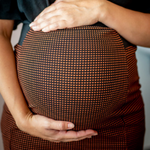
25 February 2022
The Fetal Medicine Foundation has donated £1.5 million to King’s College London to fund ground-breaking research to advance the care of pregnant women and their babies in south east London.
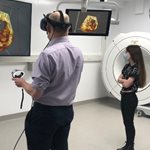
16 February 2022
New technology developed by researchers at Evelina London and King’s College London allows surgeons to immerse themselves into a patient’s heart to plan surgery using virtual reality.
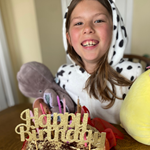
23 December 2021
NHS England have secured the first deal of its kind in Europe for a pioneering treatment for peanut allergy.

19 March 2021
Evelina London has played an important role over the last year in caring for a small number of children and young people with paediatric multisystem inflammatory syndrome.

30 September 2020
A study from Evelina London has suggested a new area of research to prevent coeliac disease.
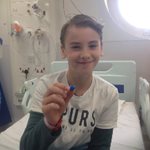
14 September 2020
A boy severely allergic to peanuts can now safely tolerate seven of them thanks to a ground-breaking trial.
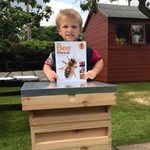
10 September 2020
A primary school boy is realising his dream of becoming a bee keeper following his participation in an international drug trial at our hospital.
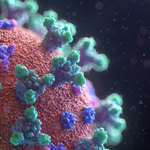
8 June 2020
A detailed analysis of children with a rare childhood syndrome linked to COVID-19 has shown that early treatment is a key factor in outcomes. The clinicians leading the study advise parents to seek medical care for their child if they are worried.

12 February 2020
New research has found that children who were allergic to one type of nut could safely eat, on average, nine other types of nuts.

13 August 2019
The TV presenter and children’s author and illustrator visited Evelina London to talk about her new book and encourage children to study science.
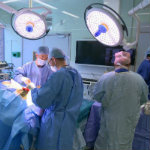
11 July 2019
A two-year-old girl has become the youngest child in the world to undergo deep brain stimulation.

2 July 2019
Evelina London’s neuromuscular service has received funding of £193,487 from the charity Duchenne UK.
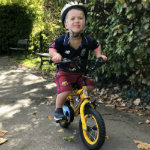
25 June 2019
Results of a trial, which took place at Evelina London, have been published in the New England Journal of Medicine.
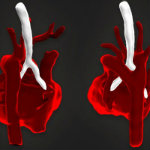
27 March 2019
Scientists from Evelina London and King’s College London have developed a new method using MRI to produce detailed 3D images of the fetal heart.
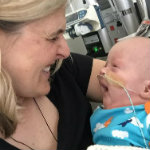
28 December 2018
More than 70 babies from our neonatal unit took part in a ground-breaking trial which looked at giving platelet transfusions, the cells that help the blood to clot, to babies born before 34 weeks.
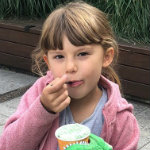
19 November 2018
Researchers from Evelina London Children’s Hospital and King’s College London have taken part in a major study that could lead to a ground-breaking new treatment for peanut allergy.
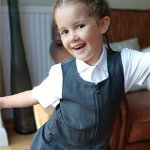
26 September 2018
A father is competing in an ‘urban triathlon’ to thank Evelina London after his daughter received a cutting-edge treatment to prevent brain damage.
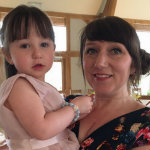
16 July 2018
Heart abnormalities can now be diagnosed in babies at an earlier stage of pregnancy thanks to high resolution scanners in the new fetal cardiology unit at Evelina London.